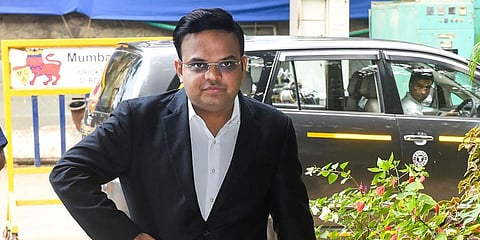

Fine, Amit Shah’s son Jay Shah cannot speak English with an Oxbridge accent. How many Indians do? Last week, the internet went ballistic by being mean to Shah Jr, memeing and mocking his staccato Gujarati accent in his statement on hiring MS Dhoni. Obviously the BCCI secretary was using a teleprompter. What’s the big deal? So many politicians, CEOs and news anchors do. Being woke doesn’t mean only boffing the BJP and Hindutva ad nauseam. It also means giving guys like Shah a break for not talking like David Niven, although his nepotistic appointment at the BCCI crease is fair game. Being snarky about Jay’s angrezi isn’t cricket. But then, accent-shaming has been around as long as language started to define cultural identity along with dress and food.
As a South Indian living in Delhi for the last 40 years, I have watched with amusement the ‘Madrasi’ trope being bandied about by the city’s Punjabi puttars. For North Indians, there is no Telugu, Tamil, Kannada or Malayali—it’s all Madrasi; all South Indian food is idli sambar; all people south of the Vindhyas speak as if they are gargling with stones, never mind Punjabi was not even a word when the Cholas were ruling large parts of Southern Asia. When Pt Jawaharlal Nehru, who spoke English like an Englishman, decided to create states according to language, he wouldn’t have imagined that accent-shaming would become a national sport like cricket.
His political world encompassed India’s entire linguistic spectrum; Gujaratis Sardar Patel and Morarji Desai, South Indians C Rajagopalachari and John Matthai, Bengali Syama Prasad Mukherjee, Bihari Rajendra Prasad, Parsi Cooverji Hormusji Bhabha, Marathi CD Deshmukh, Odia Harekrushna Mahatab, Sikh Amrit Kaur et al. Most of them spoke like the manor born; Patel did law at the Middle Temple. This eclectic composition was not meant to appease regional interests, there was only the national interest. Then English was not a matter of class, there were bigger issues at stake like rebuilding post-colonial India.
Our current ruling leadership does not speak Downton Abbey style. Accent defines class, and accent-shaming is a way of marking the social ladder. The BJP’s main linguistic constituency is the Hindi heartland and its auxiliaries, although there may be more Patels in the London telephone directory than in the Cabinet. There is no doubt that a class divide exists between the BJP and the Congress it despises, whose leaders and spokesmen such as Shashi Tharoor, Kapil Sibal, Manish Tewari, Anand Sharma and Pawan Khera are fluent in both English and Hindi. India’s regional leaders are so comfortable in their linguistic identity that they have no animosity towards English—Tamil Naidu’s MK Stalin has cosmopolitan economists and Nobel Laureates advising him.
The BJP’s visceral dislike of English is worth a JNU thesis on India’s class divide. Is its age-old endeavour to weaponise Hindi a token of cultural self-doubt? Repeated references to a glorious racial, cultural and classical past are signs of needless insecurity. Perhaps the libs and anti-saffron crowd are accent-shaming Jay Shah to flex their cultural moxie at a time when old money Lutyens’ Delhi is being razed to make way for a nouveau vista, but Jai Hind means the same in all languages. The accent is irrelevant. The spelling is the problem.